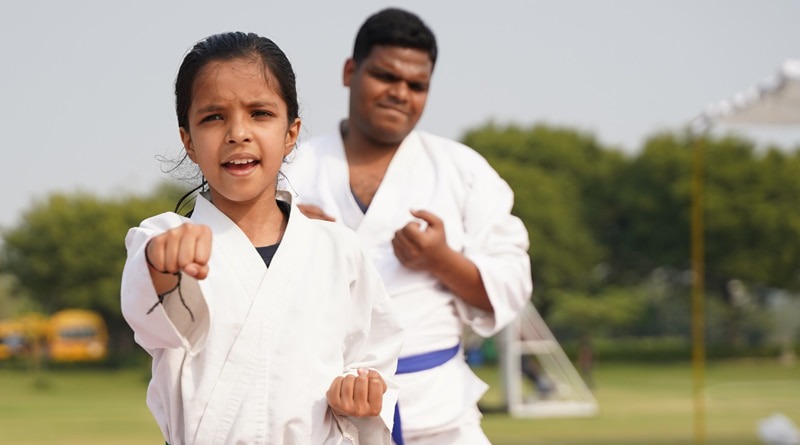
One Self-Advocate’s Perspective on a Strengths-Based Medical Model of Disability
By Sean Inderbitzen, LCSW
Introduction
Neurodiversity is a growing movement with recent wins within the American Medical Association — such as its removal of its exclusive endorsement of Applied Behavioral Analysis. Neurodiversity promoters have been celebrating this win globally. However, in this conversation is the subtle introduction of a need to move away from the word “Disorder”, and towards a non-stigmatizing term. What is not overtly clear is the level of privilege this introduces.
Key Terms
- Privilege: The special rights of one group over another (e.g. those who adhere to a social model of autism have the privilege of economic and familial stability to be able to say “the world needs to change, not us”)
- Social Model of Disability– “Social models of disability” are the views of society on a particular phenomenon, in the context of this text: autism.
- Medical Model of Disability- “Medical models of disability” are ones which are evidence-based explanations of behavior (for example, cancer), which focus on human deficits of experience and ways to resolve these.
- Strengths perspective– A historically rooted perspective in Social Work, focusing on a person’s individual abilities or capacities which enhance their and often other’s existence.
Where is it
In a recent keynote presentation a speaker remarked that their goal was “shifting the definition of autism from a series of deficits, disorders, and disability and focusing on the characteristics defining as a set of differences in India. Autism Spectrum Difference.”
This perspective like others highlights a Social Model of Disability. What it doesn’t account for is the given level of privilege this perspective exhibits in a country that is may not be ready to embody such a perspective. For this article I will discuss why I can’t embrace this model of disability, and ultimately why we need the medical model.
If I, Sean, were to make this statement, I would be doing so as a white, cisgender male, with a doctorate (from an arguably almost ivy league institution), and stable employment. One example of the privilege I have is high income relative to others with autism. A doctoral education for those who are not familiar with educational labels, is the highest level of traditional pedagogy indicating years of time, and the financial resources to obtain an associates, a bachelors, a masters and finally the doctorate. Most persons obtaining a doctorate end up with roughly $96,800 for a Doctorate of Philosophy (PhD) (education data initiative; 2023), while average hourly earnings of a person with Autism (USA) who was employed full-time earned an average of $8.08 per hour (Drexel Life Outcomes Research Program, 2023). This is roughly $646.40 every two weeks (pre-taxes) and $16,806.40 annually.
So, to have both the time and income to complete a doctorate and the income to pay for said doctorate (which is largely only loan eligible) reflects a privilege of someone who has the ability to meet all their basic needs like love and belonging, safety and security, and physiological needs -food, shelter, water, etc. (Maslow’s hierarchy of needs). And while that is a wonderful thought, living on a combination of an average income of $646.40 and public benefits do not lend the necessary space per se to be open with one’s employers or peers about their relationship to being autistic. Unlike myself, the average full time employed autistic person (whose career mobility is generally not great) there is a much greater threat endured by a person who makes $8.08 per hour, and severe limitations to getting accommodations met without encountering real loss. Thus, when a person with ASD in a foreign country is expected to be labeled as someone with an “Autistic Difference”, it does little to protect them. Nothing to protect their difficulty attaining basic needs of food, shelter, and water. This being a key place for a word like “disorder” that is reflective of the challenging nature of persons who do have autism.
The role of privilege in popular social platforms
My challenge with most autistic social media stars (e.g. those on YouTube, LinkedIn, TikTok, and Instagram) is that this move towards a social model of disability promotes privilege. In short, their advocacy efforts can actually undermine the very people they are trying to protect. I feel I would be doing the same if I were to come out in support of a social model of autism.
What I find so challenging about telling my autistic patients or readers that they have an “Autism Spectrum Difference” is that in a sense I’d be lying to you and telling you life will be easy. I’d be invalidating the very difficulties and discrimination you and I will experience over the courses of our lives. It’s certainly something I could do, and due to my economic and educational privilege I would be insulated from the impacts of my words. But you the reader may not. You might not experience the ease I do for having gone to a school like Tulane, where people like the late Ruth Bader Ginsberg have gone and obtained degrees. To put it simply: there may be a gap between us economically and educationally. So, for me to claim that what we endure is not a disability is simply to betray you and my own sense of integrity because this playing field isn’t level.
To promote this economically situated privilege does not adequately address the potential harm a person with autism may endure under the name Autism Spectrum Difference. While both an easy and popular position to take it does so little to account for the harmful consequence these words might cause you. So, to you the reader, I ask you to exercise caution around the words of those you consume because it is wonderful to believe that society can change, but is not helpful to undermine yourself in the process.
Works Cited
https://educationdata.org/average-cost-of-a-doctorate-degree

Sean is a Behavioral Health Therapist, and lives with an Autism Spectrum Disorder. He has a caseload with 33% of his patients that live with ASD and varying comorbid psychiatric conditions. Prior to being a mental health clinician, he was a Vocational Rehabilitation Specialist for Wisconsin Division of Vocational Rehabilitation for 3 years. He was also appointed by Governor Walker to the Statewide Independent Living Council of Wisconsin. He is an incoming member to the Motivational Interviewing Network of Trainers, and provides training on motivational interviewing, ASD and employment, and ASD and comorbid psychiatric conditions. For more info, find him at Seaninderbitzen.com or on LinkedIn, and look for his new book Autism in Polyvagal Terms: New Possibilities and Interventions.




